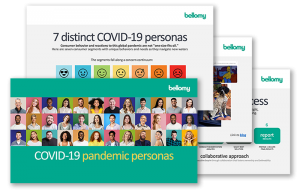Segment 3: Under-affected realists
Practical, conservative, short-term modifiers

This group recognizes that there will be a global financial impact but are not as concerned about their own personal finances.
This segment recognizes the threat of the virus and that there will be an economic impact (41% think it will take a year or more to recover) but they are not as concerned about this downturn personally, perhaps due to savings or having fewer people to care for. These consumers report low to moderate incomes (33% less than $50K) but have fewer financial and personal responsibilities.
They don't plan on shopping less because they don't shop a lot to begin with. They recognize the threat of the virus, but their daily lives are not as impacted. @ryan3levis, @jipiehyeah, @thecarolinabeerguy
@ryan3levis, @jipiehyeah, @thecarolinabeerguy
Most expect that their purchasing behaviors will return to "normal," likely because they do not feel the need to purchase much in general. They have the fewest children in the household and did not have much planned travel or purchases that had to be canceled.
- Habit changes: "Be more conscious of touching my face and more aware of what I touch when I'm out… and washing my hands."
- Biggest concern: "Hoping the virus doesn't keep spreading."
You've met "under-affected realists," now get to know the other segments
- covid-19
- segmentation
Topics
 Get the pandemic personas at your fingertips
Get the pandemic personas at your fingertips
Download our PDF for insight on the seven segments of consumers we identified based on their reactions to the COVID-19 pandemic. Get a detailed breakdown of the segment profiles and learn more about how consumers' attitudes and behaviors have shifted since March.





